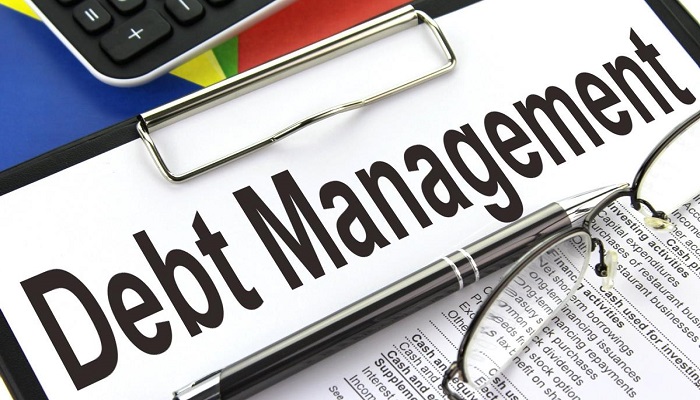How To Manage Your Debt Wisely.
There’s nothing wrong with supporting yourself with a loan when you’re broke or when you want to start a business or expand an existing one.
But because some loans will only add to your financial problems, it’s important to know which loan is good for you and how to manage your debt.
One thing you must consider while applying for a loan is the payback period.
Many people have lost everything they had because they couldn’t manage their debt properly.
When they took a bank loan and defaulted, the bank took possession of all the assets they’d used their entire life to build.
Selling your cars or other valuable properties to pay off a loan when your lender is troubling you isn’t the best way to manage your debt.
Though you have no choice but to let go of your house if it was collateralized and you defaulted. The bank has the legal right to seize it.
But to avoid a terrible situation like this happening to you, there are things you can do before and after collecting a loan.
And this post will put you through.
Why Defaulting on a Loan
It can be easy to get a loan but sometimes difficult to refund it if the conditions attached to it are harsh or violated.
Normally, every loan has some conditions that guide how it should be used and paid back.
If a loan meant for expanding a business is used for setting up a new business or for leisure, the benefactor will have a problem paying it back.
That is, if you collect a loan and fail to use it for its intended purpose, you may end up defaulting.
Another mistake most people make while taking a loan is oversight. And that results in signing a loan agreement without a thorough understanding of its conditions.
Nobody will see a fire and like to put his head in it.
But because you need money so badly that all you think about is just having it, your lender may take advantage.
And there would be problems if after taking the loan, you realized that the conditions you agreed to are difficult to meet.
Meanwhile, if you can’t keep to your payment – interest+principal amount, you will have problems with your lender.
And if that happens, it’ll be difficult for you to return to the same person or institution for help next time you need a loan.
Being a debtor won’t change anything in your life than to worsen your financial situation.
This calls for the need to know how to manage your debt and be financially stable.
If a loan is the only option you have, this guide will teach you how to pay off all your accumulated debts and be free.
But without knowing which loan is good, how do you know which one to apply for? So let’s take a quick look at the types, advantages, and disadvantages of loans.
What’s a Loan?
A loan is, however, the act of collecting money from an entity and refunding it as agreed. If you incur a loan from an individual or organization, you’re indebted to the lender until you pay back the money.
A loan may attract interest or not. But what’s important is to refund the money as agreed.
In most cases, a loan requires interest, time, and collateral before it can be granted.
The implication is that when you incur a loan, you’re a debtor until you pay the principal amount and certain interest within the period the loan lapses.
Types of Loan

In finance, there are two types of loans: secured and unsecured loans.
1. Secured Loans
A bank loan is one of the options you have.
Before a bank can give you a loan, you must submit your collateral or anything worth more than the value of the loan.
Such a loan is referred to as a secured loan.
2. Unsecured Loans
Alternatively, there are unsecured loans which include credit card debt, personal loans, bank overdrafts, credit facilities, corporate bonds, and peer-to-peer lending.
These are loans you get from private individuals or companies without a pledge of your assets.
Interest may or may not be attached to an unsecured loan. It all depends on both individual lenders and borrowers.
The Federal Government of Nigeria through the Bank of Industry launched MarketMoni to grant interest-free loans to entrepreneurs in Nigeria.
The scheme allows traders, artisans, farmers, and small business owners to have access to low-cost lines of credit loans without interest.
These include credit card that offers 0% interest on new purchases, current accounts that offer a 0% interest overdraft facility, 0% money transfer credit card, and so on.
However, some private lending companies may charge a higher interest rate on unsecured loans.
But because they are faster and require no collateral, most people prefer them to secured loans without considering the high interest rate.
Advantages and Disadvantages of Loans
The interest you pay on a loan you get from a bank depends on market conditions such as monetary policy, inflation, or demand and supply. Any moment the exchange rate is high, you’ll pay a higher interest rate.
And because that will affect your entire finances, the irregularity of interest rates may lead to irregular payment of the debts. That is, if the rate is too high, you’ll only be struggling to pay the interest while the principal amount accumulates.
On the other hand, unsecured loans can only serve a short-term need even though they attract a high interest rate.
Irrespective of the type of loan you incur, you’ll definitely pay more than the amount of loan you receive.
For example, you’ll pay a service charge, interest, and also the principal amount.
In fact, you may lose your collateral to the bank if you exceed your loan tenure.
This means that while you help the bank or the private individuals to grow, you suffer.
So, of what relevance is a loan you get and refund with hardship?
How to Manage Your Debt
Banks have the legal right to take possession of all your collateral if you default on a loan.
Even if you manage to pay later and the bank reports you to credit bureaus, for you to get a loan in the future may be impossible.
Similarly, your family or friends won’t help you the next time you need their help if you betray their trust once on the loan they give you.
So, against all these mishaps, if the only option you have is to get a loan, there are ways you can manage your debt that you won’t be adding to your financial problems.
1. Bargain Well
In business, you don’t get what you want but what you bargain.
So, if you need a loan and you have to pay interest on what is available, take your time to negotiate very well on the loan tenure and interest rate.
Make sure you have a clear understanding of how the lender charges his interest and ensure there’s no hidden fee.
Get the interest rate, loan tenure, and payment interval before you apply.
Let’s say the tenure is twelve months and the condition permits you to pay back on a monthly basis, break down the principal amount into twelve months and do the mathematics.
Know the amount of interest and principal you’ll be paying to your lender, including the interest and principal amount on a monthly basis.
If the monthly payment is more than what you can spare from your monthly income, you have to re-bargain and reduce the loan so that you can pay it back without any difficulty.
Otherwise, you’ll put yourself into trouble if you take an excessive loan.
2. Live Within Your Means
You’ll stop being a debtor the moment you stop the habit of spending the money you don’t have.
If you’re hungry, don’t buy on credit because you want to eat what your friends eat. Instead, find a nearby restaurant and enjoy your $2 if that’s all you have to get a bowl of rice.
That’s if you want to buy something and you don’t have the means, look for what you can afford or wait until you can afford it.
Don’t spend $5 when you have $2 because your friend says he’ll lend you some money to buy whatever you want and enjoy yourself.
Some loans may be necessary if they attract no or little interest, or you have a regular income and enough savings worth 50% of the value of the project you want to pursue so that you won’t totally depend on them.
Student loans, car loans, or mortgages fall in this category. And because they’re usually long-term loans, paying them off may not be challenging.
If you’re very certain of paying more towards the principal balance rather than the interest, you’ll benefit from the loan.
3. Reduce Your Expenses
Taking a loan sometimes is not the problem but failure to pay as appropriate, can lead to accumulated interest. And if care isn’t taken, the interest can be more than times two of the principal balance if you default.
Try as much as possible to reduce your expenses while you’re paying back a loan.
4. Eliminate Debt
Once you can stop getting more loans, it won’t be difficult to eliminate your debts.
Paying back as pledged will also help you reduce your debt.
If you’re to pay back at the month’s end, make sure you pay the money before the due date to avoid paying extra charges.
You may need to pay extra on your interest if you miss a payment. And the more this happens, the more difficult it becomes to manage your debt.
5. Invest
You can equally invest the little funds you have in a business and use the profit to offset your debt. When you have different sources of income, managing your debt won’t be stressful.
Conclusion
If you don’t manage your debt appropriately, a loan can wreck you as much as it can relieve you. If you’re on a loan, don’t feel too relaxed until you pay off the loan. Make sure you have a monthly budget for your expenses and ensure your loan payment is at the top of your list.
RELATED ARTICLES


